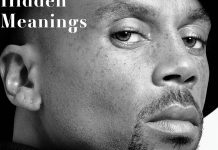
Decatur Book Festival
This labor day weekend, the AJC Decatur Book Festival will celebrate its fifth anniversary. This precocious, audacious five-year-old has become one of the signature literary events in the country, attracting some 70,000 people to downtown Decatur. Keynote speakers have included heavy hitters such as Sir Harold Evans, Charles Frazier, Arianna Huffington, and this year’s Jonathan Franzen. But from the beginning, the emphasis has been on being smart and creative rather than simply being big.
 For every somber discourse on the future of publishing, there’s a Ladybug Girl parade. For every panel of Civil War historians, there’s a wrestling match or a petting zoo.
For every somber discourse on the future of publishing, there’s a Ladybug Girl parade. For every panel of Civil War historians, there’s a wrestling match or a petting zoo.
“Here’s a secret we knew: ‘Bookish’ people like to party,” says Tom Bell, cofounder and program director. “They like parades and picnics and games and good food and drink and dancing at least as much as—probably more than—the average person.”
This year’s keynote speaker, Franzen, is heady proof that this sassy little festival has earned some serious respect in the publishing world. Nearly nine years after the publication of his National Book Award–winning novel The Corrections, Franzen’s new novel, Freedom, is being released only a few days before the festival, which will launch his international book tour.
Among other featured authors this year: Pulitzer Prize–winning journalist David Finkel (The Good Soldiers), memoirist and novelist Joyce Maynard, Ridley Pearson, Emily Giffin, Thomas Lux, and Diana Gabaldon, author of the time-traveling Outlander saga (latest volume: An Echo in the Bone).
“To get thousands of people flowing easily through a festival that covers several city blocks—and provide enough signage and assistance for people to find what they’re looking for—is a neat trick,” says Gabaldon, a perennial festival favorite. “The Decatur Book Festival does it beautifully, and does it with a charming sense of relaxation.”
It is one of the keys to the festival’s success: The authors tend to enjoy this event as much as the crowds do.
“This festival is made for being outside, mingling, grabbing a bite to eat at some great little restaurant, and talking to other book lovers,” says longtime Atlantan Pearl Cleage, playwright, essayist, and novelist (Till You Hear From Me). “Who could ask for anything more?”
The lineup includes tracks for graphic novels, business, cooking, health and wellness, emerging authors, children’s authors, and more. “The Decatur Book Festival wins the Goldilocks prize,” says David Kirby, a poet and author (coeditor of Seriously Funny) from Tallahassee, Florida. “Whereas other festivals are too large or too small or too spread out over time and space, everything about this one is just right. It’s a little bit of Walt Whitman’s ‘America’ on a steamy Saturday.”
The poetry track at the festival is a perennial powerhouse, painstakingly curated to include new voices plus the tried-and-true. Pulitzer Prize–winning poet Natasha Trethewey, who lives in Decatur, returns this year.
For a full schedule, go online at decaturbookfestival.com.
(Editor’s note: Weaver is on the DBF programming committee.)
New this month
New Stories from the South: The Year’s Best, 2010 edited by Amy Hempel
(Algonquin Books, $14.95 paperback)
“I want yearning, not nostalgia,” writes guest editor Amy Hempel, explaining her choices for this twenty-fifth-anniversary collection. “I want my breath to catch at a last line.” Ron Rash, Dorothy Allison, Wendell Berry, Elizabeth Spencer, and more make it one of the strongest editions yet.
Oraien Catledge: Photographs by Oraien Catledge
(University Press of Mississippi, $35)
Mississippi-born photographer Oraien Catledge found his muse in the unforgettable faces of the white working class who eked out a living in Atlanta’s Cabbagetown. Pulitzer Prize–winning novelist Richard Ford and Constance Lewis, founder of the Opal Gallery in Atlanta, edit this remarkable story.
The Grand Design: Strategy and the U.S. Civil War by Donald Stoker
(Oxford University Press, $27.95)
Donald Stoker, a professor at the Naval Postgraduate School in Monterey, California, argues in surprisingly brisk prose that it wasn’t the North’s monumental advantages in population and industry that ensured victory. Rather, it was military strategy that determined the war’s outcome.
Illustration by Invisible Creature















